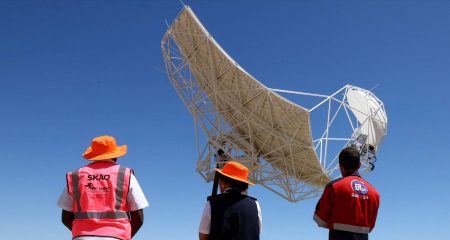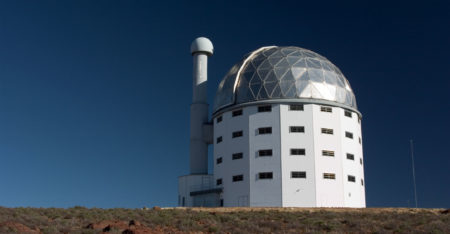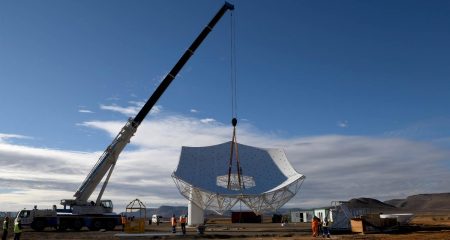SA will host the largest part of the Square Kilometre Array (SKA) project, science & technology minister Naledi Pandor said on Friday.
An SKA committee met in the Netherlands on Friday to decide whether SA or Australia (with New Zealand) would get to host the core site of the project. The committee has decided that the telescope will be shared between SA and Australia. Australia will host one of the three major portions of the project, with SA set to host the bulk of it.
The committee says the split in no way compromises the science that will be done. It will, however, increase the cost. There may be advantages to using both sites during the first phase of the project due to the work that has been done by both Australia and SA in preparing their respective bids.
The project, worth an estimated US$2bn, is expected to attract researchers and scientists from across the globe and winning the bid was expected to increase human capital in the winning region in addition to the economic injection.
A decision was expected in April but was delayed when the SKA committee decided it needed more time to deliberate and examine the investments made by each of the candidates.
SA partnered with Botswana, Ghana, Kenya, Madagascar, Mauritius, Mozambique, Namibia and Zambia to host the 3 000 antennas that will make up the SKA. Half of these were be located in the Karoo, with the rest spread up to 3 000km away.
One of the three main telescopes will be hosted in Australia, with the bulk of the project to be hosted in Africa. Pandor says she is “ecstatic” about the decision.
“I’m happy for the country and I’m happy for Africa. Of course you want everything, but I think getting three quarters is pretty good,” she adds.
Pandor says all African partner countries will still have dishes located in them. To date, the project has been managed from Manchester in the UK and the minister says that will continue for the time being, but will be taken under review.
The low-frequency aperture antennae to be used in the first phase will be built in Australia. Almost the entire second phase will be built in Africa. — (c) 2012 NewsCentral Media




